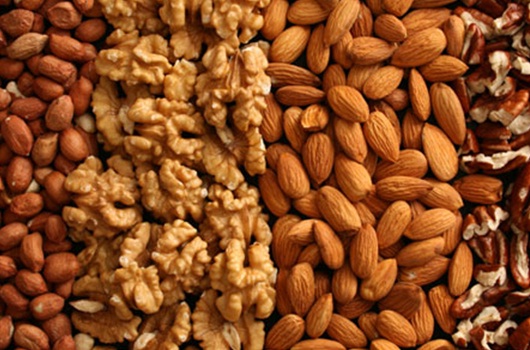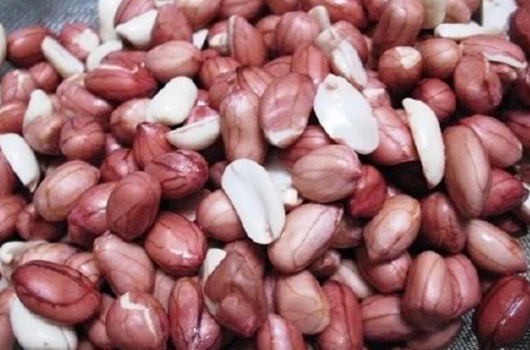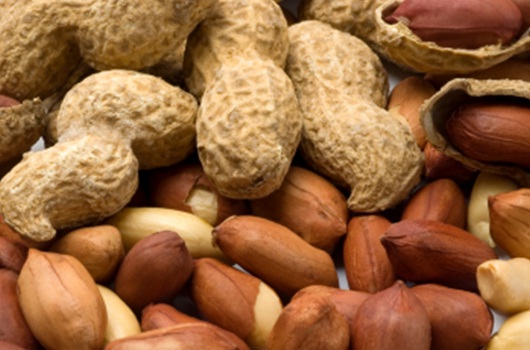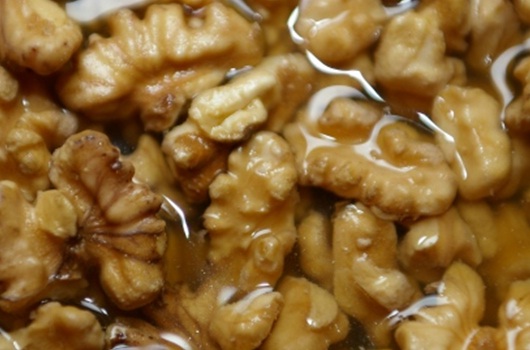Photographs: Courtesy Gud2Eat.com Courtesy Gud2Eat.com
From fighting heart disease to easing depression, you stand to gain a lot by going the nutty route!
You'll be amazed at the extent to which consuming nuts can benefit your body. Read on to learn just how.
Nutritional content
- Nuts are nutrient-packed, containing varied minerals, vitamins and phytonutrients.
- Nutty fats favourably affect blood lipids and lipoproteins and protect your heart.
- Nuts are high in unsaturated fatty acids in the form of monounsaturated oleic and palmitoleic acids.
- They are rich in magnesium, boron and zinc that are important for bone health.
- They contain high amounts of the antioxidant mineral manganese.
- Nuts are rich in antioxidants like folic acid, Vitamin E, manganese copper, and the amino acid arginine.
- Some nuts contain tryptophan, a stimulator of serotonin in the brain that lessens depression and enhances relaxation. Nuts are high in fibre and phytonutrients that help protect against cancer and other chronic inflammatory diseases.
- Nuts contain polyphenols, which help reduce oxidative stress that cause neurodegenerative and cardiovascular diseases.
Protecting your heart
Photographs: Courtesy Gud2Eat.com
Almonds, walnuts, pecans, peanuts and chestnuts have a high amount of antioxidants that protect your heart.
Almonds contain heart-healthy nutrients like omega-3 fatty acids, Vitamin E, magnesium and potassium.
Enjoy a handful of nuts daily or four times a week, as they are tasty and help reduce the risk of heart disease.
Should you soak nuts before consumption?
Photographs: Courtesy Gud2Eat.com
It's good to soak nuts -- and some may even sprout when soaked.
- When nuts are soaked, part of the complex sugars that cause intestinal gas are broken into simple sugars. Almonds and walnuts can be soaked for 12-24 hours and pecans and cashews for six to 12 hours.
- Soaking nuts stimulates the process of germination and helps the release of Vitamin C content.
- It increases the bioavailability of Vitamin B and carotenes (precursors of Vitamin A).
- Soaking nuts, seeds, legumes and grains helps remove or reduce phytic acid and tannins.
- It encourages the production of beneficial enzymes.
- It helps break down gluten and makes digestion easier.
- It makes proteins more readily available for absorption.
- It helps prevent mineral deficiencies and bone loss.
- Soaking nuts, seeds, legumes and grains neutralises toxins in the colon and keeps the colon clean. It also helps neutralise the enzyme inhibitors present in these foods -- enzyme inhibitors are important to protect the nut or seed from growing.
- Note that once the nuts are soaked, the water used needs to be discarded, as it turns very acidic.
Almonds and peanuts prevent gallstones
Photographs: Courtesy Gud2Eat.com
If you eat 100 grams of peanuts or almonds or cashews every week, you significantly reduce the risk of developing gallstones; these nuts contain monounsaturated fats, omega-3 fatty acids, fibre and mineral magnesium, all of which improve the emptying action of the gallbladder.
Antioxidants in peanuts higher than in fruit
Photographs: Courtesy Gud2Eat.com
Roasted peanuts can rival the antioxidant content of blackberries and strawberries and contain more than is found in apples, carrots or beets.
Studies show that antioxidants in peanuts deliver powerful heart health benefits.
Why walnuts are a superfood
Photographs: Courtesy Gud2Eat.com
Walnuts are rich in omega-3 fats, which protect your heart and prevent the progress of Alzheimer's.
Omega-3 fats also possess anti-inflammatory benefits and are helpful for skin diseases like eczema and psoriasis, as well as for conditions like asthma and rheumatoid arthritis.
Include walnuts in your daily diet to sleep well -- they contain a bio-available form of melatonin, a hormone involved in inducing and regulating sleep. Melatonin is a powerful antioxidant, which helps reduce oxidative stress caused by free radical damage. Thus, walnuts help reduce the risk of cancer, heart disease, Parkinson's and Alzheimer's.







Comment
article